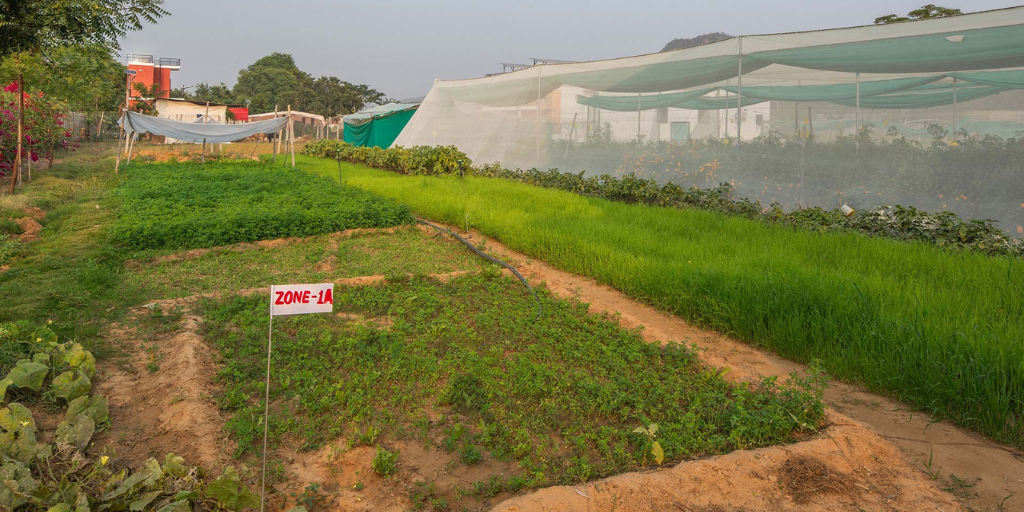
Permaculture, Organic, Regenerative & Natural Farming — What’s the Difference?
When it comes to farming, you’ll often hear terms like organic, permaculture, regenerative, and natural farming. They sound impressive, but for us at Aranyavas Nature Retreat– a Farmstay in Jaipur, the real question isn’t about labels — it’s about practice. What matters most is how we interact with the land every single day.
Still, understanding these terms can give you a glimpse into the heart of our approach.
Organic Farming – The Starting Point
Organic farming is often seen as the foundation of sustainable agriculture. The focus here is on avoiding chemicals, such as synthetic fertilizers and pesticides. Think of it as drawing a safe boundary: it protects the soil and crops from harm, but it doesn’t necessarily rebuild what’s already been damaged.
At Aranyavas, many of our practices align with organic farming. But for us, it’s just the beginning — not the final destination.
Permaculture – Designing with Nature
Permaculture isn’t a set of rules; it’s a philosophy of design. It encourages us to observe natural patterns and then work with them, rather than against them.
When we shape our gardens, plan water flow, or rotate animals across the land, we’re practicing permaculture. It’s about resilience, respect, and reuse — creating a system that nourishes both people and the earth.
Regenerative Farming – Bringing Life Back to the Soil
While organic farming avoids damage, regenerative farming goes deeper — it actively heals. This approach focuses on rebuilding soil health and capturing carbon through methods like crop diversity, minimal tilling, and using cover crops.
Every compost heap, mulched pathway, and raised bed at Aranyavas plays its part in reviving the soil, making it richer and more alive year after year.
Natural Farming – Listening More, Interfering Less
Natural farming takes inspiration from traditional methods. Here, the idea is minimal human intervention — no fertilizers, no chemicals, and often no tilling. It’s about letting nature call the shots.
Though we don’t follow this approach strictly, its simplicity inspires us. You’ll see it in our no-waste compost cycles and in the way we allow ground covers and native edges to thrive naturally.
Where All These Approaches Meet – The Aranyavas Way
At Aranyavas, we don’t pick one label over another. Instead, we weave together the wisdom of each approach to create a thriving ecosystem.
- Organic → Protecting from harmful chemicals, using simple and clean inputs.
- Permaculture → Designing ecosystems thoughtfully, from gardens to crop companions.
- Regenerative → Restoring and enriching the soil through composting, mulching, and habitat renewal.
- Natural Farming → Respecting nature’s rhythms by letting native growth flourish where it wishes.
Closing Note – Growing With Nature
Labels can guide conversations, but they are just words. At Aranyavas, we live these practices every day — by listening to the soil, planting what belongs, composting everything we can, and allowing the land to evolve naturally.
This is more than farming; it’s a partnership with nature. It’s what sustains us — and it’s what we hope you’ll feel when you walk through our fields.
